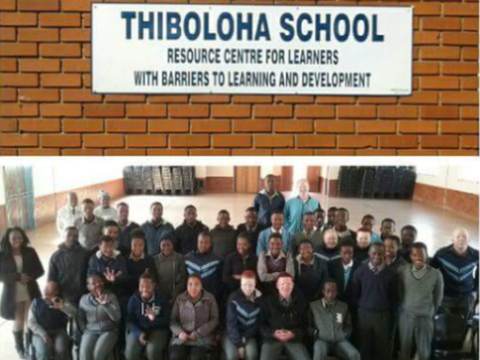Scholar promotes access for disabled learners

Louzanne Coetzee has been empowering disabled learners to progress to tertiary level education through her ‘Equal Access Provides Equal Opportunities’ project, which won the 2016 Scholar Impact Award. Louzanne, whose Masters research examines the barriers faced by students with disabilities in the context of South African higher education institutions, is acutely aware of the extra hurdles that these students face.
Louzanne notes that many students with disabilities don’t even comtemplate continuing their studies beyond high school as they receive no encouragement to do so, either at home or at school. Additionally, seemingly simple steps like accessing relevant information in appropriate formats, or completing the necessary application forms, can prove a stumbling block for many learners with disabilities, particularly for those coming from financially disadvantaged backgrounds.
Louzanne’s project aims to provide information and assistance to these learners, delivering motivational speeches and offering practical guidance regarding application processes. So far, she has visited three schools in the Free State and has delivered informative lectures to over 200 students, sharing relevant contact details, study tips, and braille copies of informational booklets. She has already physically assisted 6 learners with their university applications and hopes to reach out to many more over the coming months.
Working on the project are a team of three: Louzanne, the head of the disability centre at University of the Free State, and a staff member from the same unit who can use sign language to communicate with learners with hearing impairments. While Louzanne has described the work she has done so far as “an amazing, and highly rewarding experience” she has also been disturbed by the lack of resources available for disabled learners in her province.
“It is shocking how little the staff and students have to work with, and the lack of resources available to them. This is even more extreme in disabled schools (than in mainstream schools) because often text books have to be adapted to be more accessible and this is an additional expense that can’t be met. Specialist products such as scanners, enlargement equipment for people who are partially sighted and hearing aids are all desperately needed.”
In taking the project forward, Louzanne hopes to attract wider community involvement, and additional support from her university, to help generate extra income to assist these schools.
